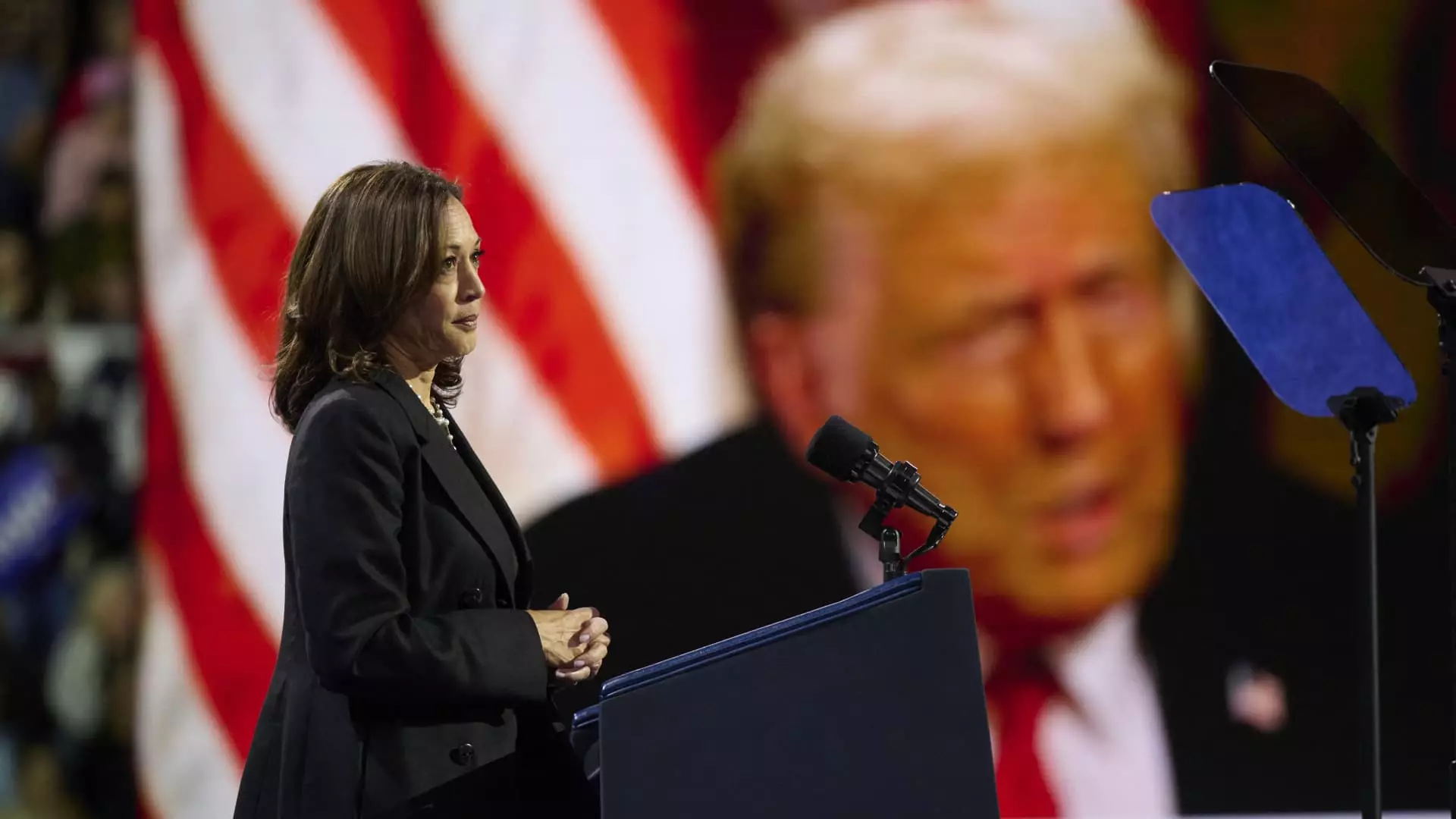The world of political betting is experiencing a transformative phase, particularly as the 2024 U.S. presidential election approaches. Recent revelations concerning the betting platform Polymarket have illuminated the complexities and potential implications of wagering on political outcomes. A notable situation has arisen with a singular trader controlling four accounts that have collectively wagered over $28 million on Donald Trump’s chances as the Republican nominee. An inquiry into these transactions has unveiled the essential role of personal biases and financial motivations in influencing market predictions during this high-stakes election.
According to a spokesperson from Polymarket, the trader at the center of this controversy has been identified as a French national boasting extensive trading expertise. This individual’s significant financial commitment to Trump’s candidacy has sparked debate among political analysts and gambling critics alike. The scrutiny intensifies considering that this whale has bet largely on Trump’s success in the race against Democratic nominee Kamala Harris. The sheer scale of these bets raises a red flag regarding the integrity of the betting market—does one person’s conviction distort the odds to the detriment of the market’s overall reliability?
Polymarket maintains that there is no evidence to suggest that this trader has attempted to manipulate the market. They have engaged third-party experts to investigate, further asserting that their findings yielded no indication of unethical practices. This insistence on transparency, however, raises further questions about the implications of a single individual exerting such control over collective market sentiment.
The divergence between political betting markets like Polymarket and traditional polling is crucial to interpret. Betting markets are fundamentally designed to gauge probabilities rather than public opinions; they reflect the amount of money at stake rather than voter intent. This distinction is pertinent in understanding the noise created around Trump’s potential resurgence while the actual voter sentiment remains, as depicted in national polls, quite close.
Elon Musk’s assertion that betting markets might serve as a more accurate reflection of public opinion than polls underscores a significant debate within political commentary circles. Yet, the collective weight given to betting outcomes often overlooks the quantitative analysis of voter behavior outlined in reputable polls.
The growing belief that betting platforms could be efficient predictive tools is countered by the argument that they can mislead the public, particularly if influential voices, like Musk, champion their credibility without acknowledging their inherent limitations. In this context, an understanding of the psychological element influencing these bets will serve to illuminate the potential misinterpretations of market movements.
The regulatory landscape surrounding political betting in the U.S. adds another layer of complexity. Following a 2022 settlement with the Commodity Futures Trading Commission, Polymarket has opted to restrict participation from U.S. traders, casting shadows on the platform’s viability in the domestic space. Meanwhile, other betting venues like Kalshi are expanding their offerings under new rulings while facing their own regulatory challenges. The CFTC’s scrutiny regarding Kalshi raises essential questions about the ethics and legality of political betting.
Clearer regulations may enhance the industry’s legitimacy while protecting both traders and consumers from potential exploitation. The ongoing intrigue in if and how the regulatory framework can evolve alongside the burgeoning interest in political wagering is surely worth monitoring.
A Cautionary Outlook
As we move closer to the election, the evolution of platforms like Polymarket highlights the necessity for a cautious approach toward political betting. While it can represent a reflection of market sentiment, any singular trader’s domination over such financial stakes poses a risk to the equilibrium necessary for fair predictive measures. Ultimately, it is imperative for stakeholders—traders, analysts, and public consumers—to tread thoughtfully in interpreting the signals emitted from these markets, especially in the charged atmosphere surrounding the upcoming elections.
Articulating the risks of conflating betting odds with actual electoral outcomes emphasizes the need for foresight and clarity as we navigate this rapidly evolving betting landscape. The intersection of personal motivations in wagering must also be diligently monitored to preserve the integrity and intention behind political prediction markets.


Leave a Reply